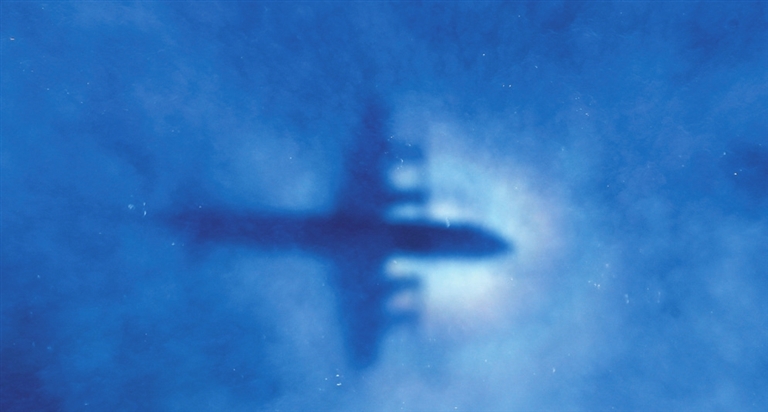

FOR nearly 10 years, Jiang Hui has been searching for answers as to why the plane carrying his 70-year-old mother back from vacation in Malaysia vanished without trace. Jiang’s mother, Jiang Cuiyun, was one of 239 people on board Malaysia Airlines Flight 370 when it deviated from its scheduled path from Kuala Lumpur to Beijing and disappeared over the Indian Ocean on March 8, 2014. To this date, the fate of MH370 remains one of history’s greatest aviation mysteries, and Jiang has never given up on his quest to find out what happened. On Monday, the Chaoyang District People’s Court in Beijing started hearing claims for compensation for more than 40 families of MH370 passengers, who say the disaster not only deprived them of their loved ones, but also plunged some into financial distress. “Almost 10 years on, the family members (who refused to accept settlement offers) did not receive any apology or a penny of compensation,” said Jiang, 50. “In fact, my mood is very complicated now. There is both a sense of relief and a deep feeling of helplessness.” Jiang is suing Maylasia Airlines, its insurer Allianz, Boeing and Rolls-Royce, the manufacturer of the plane’s engine — companies he believes should be held responsible under Chinese law for damage occurred during transportation. His demands include compensation, a formal apology, and the resumption of psychological assistance to family members, as well as the creation of a fund to continue searches for the plane. These Chinese families are taking the companies to court with varying but largely overlapping appeals, with hearings expected to last until Dec. 5, Jiang said. His own case will be heard Friday, he added. They have asked for civil compensation ranging from 10 million (US$1.4 million) to 80 million yuan each, with a major portion to cover their mental anguish. Of the more than 200 people aboard the flight, 153 were Chinese nationals. “The complete lack of legal remedies over the past decade has made our painful lives even more unbearable,” Jiang said. Legal uncertainty It’s unclear what enforcement power the Chinese court can wield over the defendants if it rules in favor of Jiang and the other plaintiffs. All of them are international companies headquartered outside China, though Malaysia Airlines, Boeing and Roll-Royce have offices in the country. Similar cases brought in the United States by the victims’ families have been dismissed, CNN reported. According to Zhang Qihuai, a lawyer who represents the families of missing passengers in Beijing, the U.S. court that handled the case dismissed it because the court failed to determine the responsibility of the implicated entities after coming to the conclusion that there was no quality problem with the airplane. Therefore, the U.S. court decided that these lawsuits should be handled by the Malaysian legal system. Before the latest hearings, Zhang had been to Malaysia and the United States to attend litigation over the missing flight, according to China News Service. Zhang said that in Malaysia, the lawsuit focused on the liability and cause of the incident, but the local court ruled only in favor of Malaysian passengers’ relatives. In Malaysia, two young boys who lost their father on the flight sued Malaysia Airlines for breach of contract and the Malaysian government for negligence in 2014. The case was settled out of court the next year. In China, families who signed a settlement agreement with Malaysian Airlines received between 2.5 million and 3 million yuan in compensation each. Only a few dozen Chinese families signed initially, but over the years more have opted to settle. By March 2021, about 90 families had still declined to settle, but the number halved after the COVID-19 pandemic, according to Jiang. Now, only more than 40 families have not settled, who said they refused to sign the agreement because it removed all responsibility from the airline and the Malaysian government. “On our long journey seeking the truth, many families fell into a tough livelihood or even survival situation. They settled as a last resort to ensure their lives,” Jiang said. “But no matter having settled or not, our ultimate goal remains the same — which is to find the plane and our loved ones.” A 2018 report by Malaysian authorities concluded the investigation team was “unable to determine the real cause of the disappearance of MH370.” Human interference or error was more likely the cause of the plane’s disappearance than an aircraft or system malfunction, the report found. The lack of conclusive evidence led to various theories and speculation about what happened to the flight, and Jiang said some family members still believe their loved ones are alive. He says he’s keeping an open mind — and will accept any outcome, as long as there is evidence. Two rounds of search While the jetliner was never found, pieces of apparent debris have washed up on islands in the southern Indian Ocean and the shores of Africa — suggesting the plane had broken up. The initial round of the search operation, led by Malaysia, China, and Australia, was one of the most extensive surface and underwater searches in aviation history. Spanning 1,046 days, this massive effort covered an area of 120,000 square kilometers, amassing a cost of approximately US$156 million. Despite these immense efforts, the final report from the Australian Transport Safety Bureau revealed that authorities remain uncertain about both the cause of the plane’s disappearance and its precise location. Only 33 fragments of wreckage were discovered throughout the search, and the plane’s black boxes were never recovered. In January 2017, a joint statement by the governments of China, Malaysia, and Australia declared the suspension of the search operation. The U.S.-based maritime search company Ocean Infinity initiated the second round of search operations in January 2018, contracted by the Malaysian government on a “no-findings, no-fee” agreement. After scouring more than 110,000 square kilometers of the ocean, the company ended its search operation May 29, 2018, with no new evidence found. To date, only three fragments of wreckage have been definitively confirmed as belonging to MH370. One man’s quest Jiang’s persistence was driven by a key motivation — the urge to do something for his mother, who enjoyed traveling in her retirement. “I’m at an age where I should pay filial piety to my mother, but I no longer have the chance to do that. So, finding her is the only way I can be filial to her,” he said. Before the MH370 tragedy, Jiang was an ambitious manager at the Beijing office of a State-owned communications company. But one year after the flight went missing, he left the company and has since focused his time and energy on finding the plane. Over the years, he has visited search teams in Australia and roamed the remote shores of Mauritius, Madagascar and Réunion — a French island in the Indian Ocean — to scour for the Boeing jetliner’s debris. In Beijing, he has held regular gatherings with family members of other flight victims to discuss the next step in seeking answers and justice for their loved ones’ disappearance. “I used to get completely immersed in my job, but now I can truly understand the meaning of life, and what are its most precious things,” he said. “If I can push for any progress (in finding MH370), I would feel very gratified and happy.” (SD-Agencies) | 
